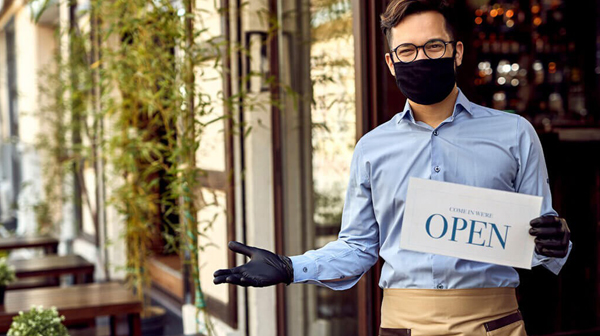Covid has made us more open and more trusting.
Empathy and compassion gain traction in the way we go to market: An important post from Nielsen which I am sharing here.
Colleen Backstrom
RIDING THE TIDE OF SENTIMENT CHANGE AND THE NEED FOR TAILORED ENGAGEMENT STRATEGIES
Nielsen MEDIA 17-06-2020
It’s always been important for brands to establish the right rapport with consumers, but the COVID-19 pandemic has elevated the challenge substantially, given its widespread ramifications around the globe. That said, we know that brands can’t afford to go silent during a crisis. The cost later on is too high. Context and sentiment are critical, and when it comes to today’s consumers, empathy, trust, health and safety will matter most to consumers for the foreseeable future.
These pillars will be important guides for brands and marketers as they shift their engagement strategies as COVID-19 fatigue sets in with consumers. Importantly, life is not returning to normal, but some aspects of pre-COVID life are coming back online after being forced to close for the better part of the spring. Face masks, working from home, social distancing and businesses operating at partial capacity remain constant reminders of our new world, and consumers see it with different eyes than before the global health crisis arrived.

In addition to affecting consumer behaviours, this pandemic has affected consumer mindsets and perceptions. Across Europe, a recent Nielsen-VisualDNA study, which surveyed people across multiple nations affected by COVID-19 before and during lockdown, found that consumers are feeling more empathetic and altruistic than they were pre-lockdown. To assess consumers’ mindsets, respondents were shown a selection of images depicting various degrees of agreeableness. The study found that compared with pre-lockdown, consumers’ perceptions are now leaning toward being more open, trusting and approaching the world with open arms.
“Our analysis highlights a notable shift in the perception of how people treat one another pre vs. during lockdown. When the respondents were asked, ‘How do you think people treat others?’ as they were shown images of various human behaviors, the results showed an increase in those selecting images relating to empathy and altruism during lockdown,” said Samara Meade, Head of Media, Nielsen Marketing Cloud U.K. While the findings identified a sway toward more agreeable sensibilities across Germany, France and the U.K., the most significant uplift occurred in France (+17%). “The results correlate with the rise in compassion we’ve witnessed among consumers throughout Europe, including interest in care for the vulnerable, increased interest in charity work and praise for the health care systems.” explained Meade.
Despite the importance of advertising during a crisis, many brands pulled back during the height of shelter-in-place lockdowns. TV ad volume in the U.K. and Italy declined 3% and 5%, respectively, between January and March. In stark contrast, ad volume in India skyrocketed 13% during the first week of lockdown.
But increasing ad volume doesn’t automatically mean revenue will follow suit. For example, consumers in Europe would likely view increased travel, health and holiday advertising as tone deaf and way off the mark.
Careful marketing requires tastefully balancing brand messaging with current social sentiment and market conditions. In some circumstances, it involves abandoning brand messaging altogether. Not sure where the line is? Consider this: Overall media consumption skyrocketed while global consumers were living in quarantined situations, suggesting a prime opportunity to bombard them with increased digital ad campaigns. Perhaps, but only if the campaigns and messages took into account that the lockdowns inspired feelings of isolation and loneliness. For example, findings from the Nielsen-VisualDNA survey found that, during the lockdown, there was a significant increase in U.K. respondents who felt uncomfortable spending the day on their own. So despite the high engagement levels, marketers always need to be precise with their messaging and tone.

As businesses around the world reopen, many consumers will cling to the mindsets they developed over the past few months. Marketers will need to approach them with this in mind, given that the world will be fighting the novel coronavirus until a vaccine or other remedy is developed. The keys to success for the foreseeable future will center on empathy, authenticity and putting the consumer at the center of the equation unlike never before.
METHODOLOGY
The VisualDNA Personality Survey is a non-incentivised psychometric assessment that triggers emotional and subconscious reactions from respondents. The survey is based on 30 years of personality psychology research in combination with new methodologies developed alongside scientists from University College London, Cambridge University, and Columbia University. The core of the survey is the OCEAN Big Five Personality Model. The methodology was developed by leading researchers in the field of psychology. It rates individuals on openness, conscientiousness, extraversion, agreeableness, and neuroticism—with each of the traits breaking down into multiple facets.
This study analysed the survey responses 20 days before the individual country’s lockdown was first imposed and 20 days after. The results are based on U.K. 38,000 responses, France 18,011 responses and Germany 7,752 responses.
 Colleen Backstrom
Colleen Backstrom
Colleen Backstrom is Director of NeuroMarketing, Kaleidoscope, a global leader in applied NeuroMarketing for Digital. She specialises in creating B2B email and web campaigns and optimising Zoom/Teams selling by converting existing sales pitches to NeuroMarketing.

You’re never too cool to learn something new...
Never miss another NeuroMarketing update

Success! Thank you for signing-up
You'll never miss another NeuroMarketing update!
Stay updated on NeuroMarketing Events & Tips
Outsource your web and email marketing to us; we apply NeuroMarketing to your sales message to engage your client’s “buying” brain. And in an uncertain and emotional world - the perfect time and space in which to apply neuroscience - you now have the opportunity to make this year, your best year ever.
Kaleidoscope respects your privacy, view our Privacy Policy here
“One small POSITIVE THOUGHT in the morning, can change the entire outcome of your day.”
